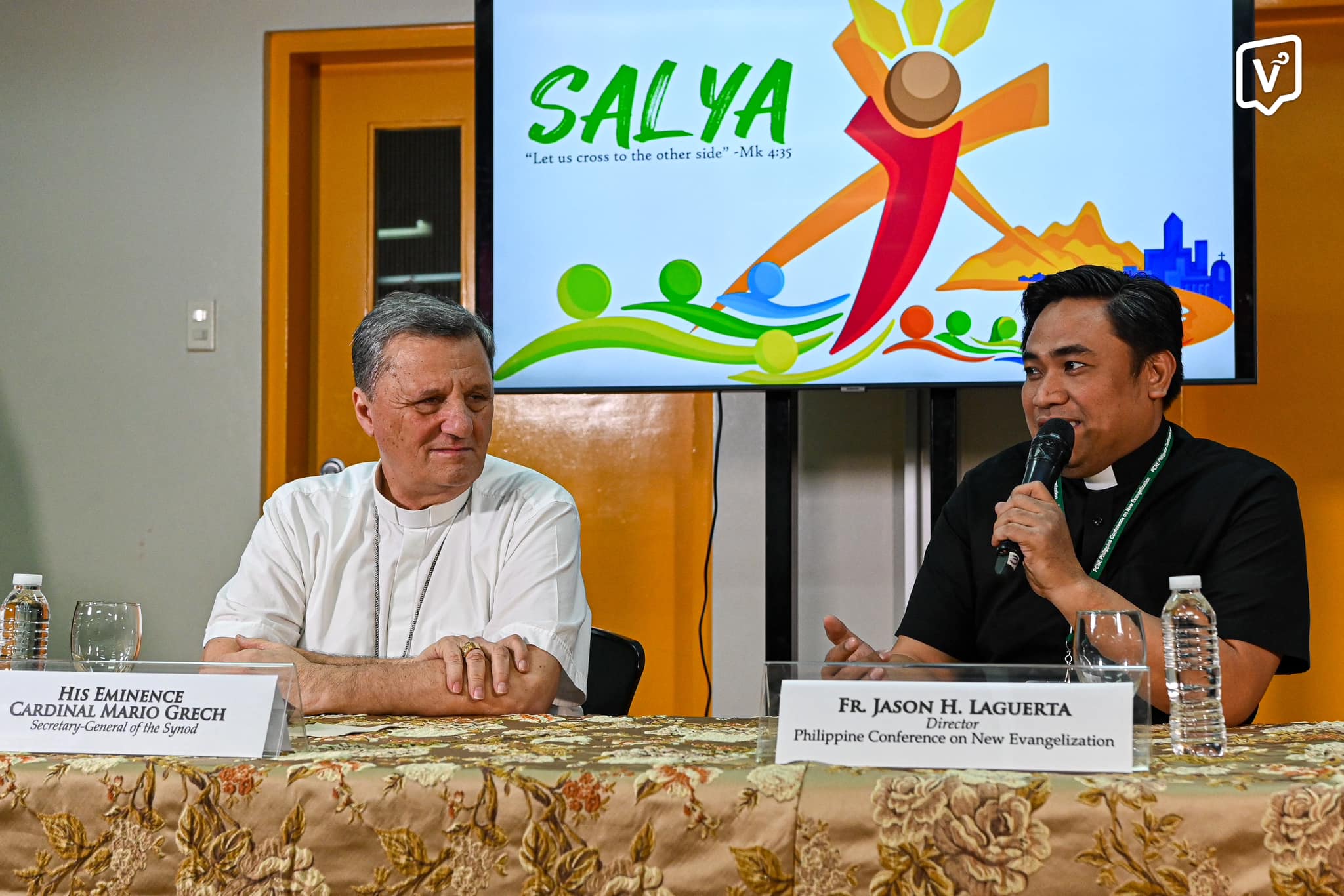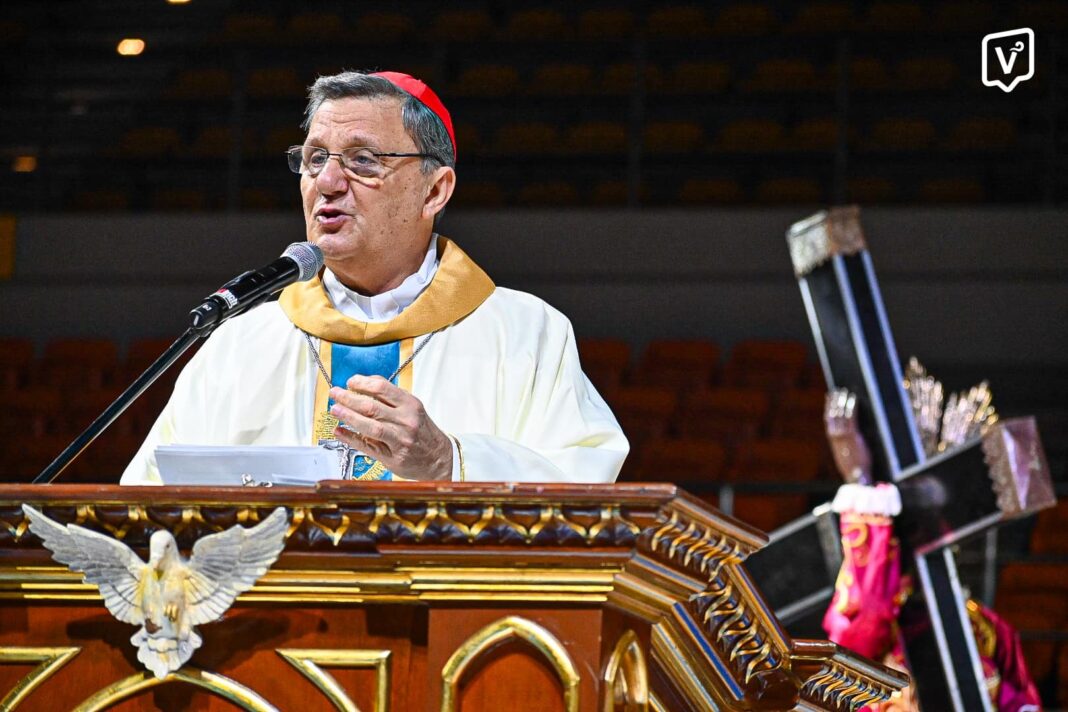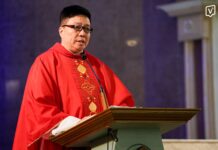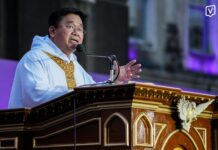POPE Francis’s Synod on Synodality has become a “liberating” experience for both the lay and the ordained to express their views on hot-button topics with honesty despite differences in their beliefs and cultures, the Vatican synod chief asserted during the 10th Philippine Conference on the New Evangelization (PCNE X).
Cardinal Mario Grech, secretary general of the Synod of Bishops, said one fruit of the assembly was to see ordinary people expressing appreciation for being included for the first time in gatherings discussing the direction of the Church.
“When people take the time and effort to listen to us, this gives us a sense of being appreciated,” Grech said in his keynote address delivered at UST Quadricentennial Pavilion on Friday, Jan. 19.
“Many laypeople in the course of this particular synod have spoken about how important it has been for them to experience being listened to in and by their Church. For many, it is the first time they have experienced this.”
Appointed in 2019, Grech has been a central figure in reconfiguring the synod to become more consultative.
The result is the Synod on Synodality, a three-year project that began in 2021 and will end in October 2024, aiming to “provide an opportunity for the entire people of God to discern together how to move forward on the path towards being a more synodal Church in the long-term,” according to its website.
The synod kicked off its first phase by conducting consultations within local parishes and dioceses to include the “people of God” before select delegates flew to Rome in October 2023 for the first of two culminating sessions.
The synod has a record number of lay and female voting members.
In the second session this October, Pope Francis will decide on recommendations affecting various sectors, including the poor and the LGBTQ+ community, from the 363 delegates who are eligible to vote, which include over 50 women.
This process, Grech said, spurred a sense of relief and action among the faithful.
“If the voice of the Holy Spirit is to be heard – preceded by prayer [and] permeated with creative moments of silence – all the faithful who participated, whether laity or consecrated deacons, priests, [and] bishops found this methodology enriching, liberating and also challenging,” the Maltese cardinal said.
“Although by no means perfect, in and of itself, this process imbued a shared responsibility for the mission and life of the Church,” he said.
“It enabled us to manifest respect both for the complementary nature of the gifts and charisms present in the Church and the diverse responsibilities exercised by the people of God – ordained as well as lay,” he added.
Some clerics, Grech shared, also found space during the synod to air their grievances about their jurisdictions.
“[A] number of bishops, moved by the evident sense of solidarity in mission and mutual respect developing over time in the synodal hall, had the courage to speak openly [and] honestly about the lonely burdensome nature of their episcopal ministry,” he said. “The very fact that they felt free to speak of this, my brothers and sisters, says something in itself.”

Disagreements
The sensitivity of some of the topics in the synod, however, presents a challenge as the project moves to its final stage.
For instance, a paragraph in the October 2023 synod report on admitting female deacons passed by a vote of 267 to 69.
It drew the largest opposition in the synod despite only recommending the formation of two commissions to reexamine the proposal and, “if possible,” present it in October.
Further studies on ordaining married men also turned out to be contentious, as the delegates voted 291 to 55.
Grech, however, assured the PCNE X delegates that conflicts are normal in the synod process.
“Tensions can really be generative of something new,” he said at a press conference at the sidelines of PCNE X on Saturday, Jan. 20. “If there are tensions, that means that the people of God are interacting.”
“Even disagreement can help in the dialogue, can help all of us to deepen our knowledge of the truth, always under the guidance of Peter,” he added.
The synod chief said other agenda items would be dealt with by various dicasteries and commissions in Rome for reflection.
With more than three-fourths of the synod delegates affirming the October 2023 synod’s synthesis report, Grech is optimistic that the Vatican assembly would transcend differences.
“This gives us confidence as a Church that we can learn to fully respect the universal and local, [and] the unity and the diversity at the same time,” he said in his keynote address. “I can understand that some can suffer from jetlag to adapt to a new synodal Church because it is a process, but let us continue to work together.”
Grech presided over the Mass on the second day of PCNE X, a three-day annual event organized by the Office for the Promotion of the New Evangelization of the Archdiocese of Manila.
In his homily, the Maltese cardinal urged Catholics to take risks in fulfilling their mission even if there are consequences.
“Just as Jesus was not afraid to live his mission up to the very end, we too should not be afraid to go against what is fashionable, what is popular, what is easy, what is materially rewarding,” he said on Saturday, Jan. 20.
“We are called to go out to quit our comfort zones and to go out to preach the Gospel […] This is evangelization,” he added. With reports from Justin Benedict T. Lim and Sheila May S. Balagan













